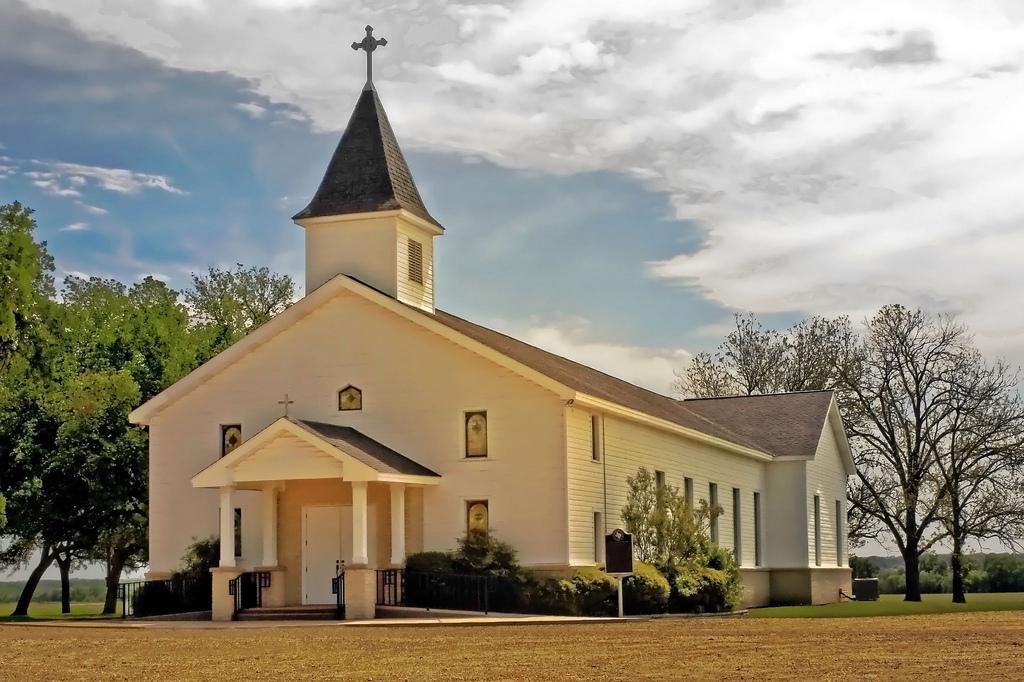 (Credit: Carol Von Canon, Flickr Creative Commons)
(Credit: Carol Von Canon, Flickr Creative Commons)
In a recent sermon, Andy Stanley made some comments that are, well, kind of jaw dropping.
When I hear adults say, ‘Well I don’t like a big church, I like about 200, I want to be able to know everybody,’ I say, ‘You are so stinking selfish. You care nothing about the next generation. All you care about is you and your five friends. You don’t care about your kids…anybody else’s kids.’ You’re like, ‘What’s up?’ I’m saying if you don’t go to a church large enough where you can have enough Middle Schoolers and High Schoolers to separate them so they can have small groups and grow up the local church, you are a selfish adult. Get over it. Find yourself a big old church where your kids can connect with a bunch of people and grow up and love the local church.
Stanley has since offered an apology via Twitter, though, to be honest, it’s not entirely clear to me if he’s apologizing for what seems pretty clearly to be his philosophy of ministry or for the offense he caused with his “bluntness.” Either way, I don’t know the man, but from little I’ve heard and read about and from him, he seems like a decent guy. So, maybe it was some sort of bizarre slip of the tongue.
My first response to Stanley’s comments was to join the chorus of (very appropriate) outrage over one of the nation’s most prominent pastors denouncing as selfish the vast majority of Christians in this country (and around the world) who don’t attend a megachurch or just a larger than 500 people church.
Instead, I want to share a simple story I’ve shared before about why I love the small, imperfect church I attend.
If you’ve heard it before, I’m sorry. Well, actually, I’m not really sorry. The events of this story happened almost 3 years ago and I still can’t tell it without tearing up. Seriously. It’s just that beautiful. At least to me. And to me, it captures the sorts of things that make – or at least can make – small churches such an incredible gift to the people that attend them: flexibility, intimacy, connectedness, and grace.
That’s not to say those sorts of things don’t or can’t exist at megachurches. They can and I’m sure in many places and in different ways they do. But it’s in small churches where you actually know the majority of people around you, not just their names, but the stories of their lives and are invested, whether you like it or not, in those lives and they in yours and where things like production value, timing, and sticking to the schedule usually aren’t at all that important that flexibility and an embrace of the imperfect can allow for moments of deeply intimate grace it’s hard to find in a significantly larger congregation because the setting and expectations don’t typically allow for that sort of thing.
That doesn’t mean megachurches are necessarily bad or absent of love and grace.
They’re not.
But this wonderful, grace filled, creative, and hopeful story – along with countless other less magical but just as loving moments of intentionality – really captures why I love my small church and will be deeply saddened to leave it once we move.
It’s a wonderful and grace filled story because I think it shows the church at its best, not perfect, but doing everything it can with the means available to it to incarnate the sort of love, compassion, and grace we talk so much about.
It’s an incredibly creative story because because it shows what’s possible if we allow our God given imaginations to run wild and dream up next ways of being incarnating the Body of Christ.
It’s a hopeful story because it shows the promise of the future and what the church can and will be able to accomplish in a radically transforming world that offers new and exciting opportunities to “be Jesus for world” in ways we never imagined possible.
The church that I attend is a fairly standard evangelical church. We’re not a mega church. We run about 150, maybe 200 on a “good” Sunday. We don’t have a hipster pastor or super produced laser lights and fog machines worship. And we definitely wouldn’t be described as “cutting edge.”
While those are some of the reasons I like the church I attend, they’re also some of the reasons I was so floored by what took place at my church one Sunday morning.
Not only did we incorporate texting into worship, we combined it with something else we don’t do a lot of as a traditional evangelical church – liturgy.
You read that correctly.
We practiced liturgical texting at church that Sunday and it was one of the most incredible moments of worship I’ve experienced in a long time and I am incredibly proud of and grateful to my pastor for creating that moment for us.
Here’s what happened…
There was a 5 month old baby in our church who is sick and hasn’t been able to be at church because of the antibiotics he is on. Before heading in for major heart surgery on Monday, his parents requested baptism.
They couldn’t bring him to church, so our pastor went to them and baptized the baby at their home. Because of the location, the congregation wasn’t able to perform their traditional role in the baptismal rite.
So, my pastor decided to think outside the box.
During worship this particular Sunday morning, the day before the planned heart surgery, our pastor put a picture of the baby up on the screen in front of the church. He asked everyone who could to take a picture of the picture with their cell phones.
After the picture was taken, our pastor read the traditional baptismal liturgy just as he would if the family and their child had been there in person.
When it came time for the congregation to respond we responded with our phones, texting the picture we had just taken to the child’s parents with 2 simple words attached.
“We promise.”
It was an incredibly holy moment where two worlds collided, the old and the new, to extend the hand of God to a family who needed His loving touch the most.
My only hope is that we as a church, both my local congregation and the broader Body of Christ, can find the courage and creative to multiply these holy moments of grace and innovation.
Because if we do, then to quote the great John Wesley, “[we] will shake the gates of hell and set up the kingdom of heaven on earth.”












